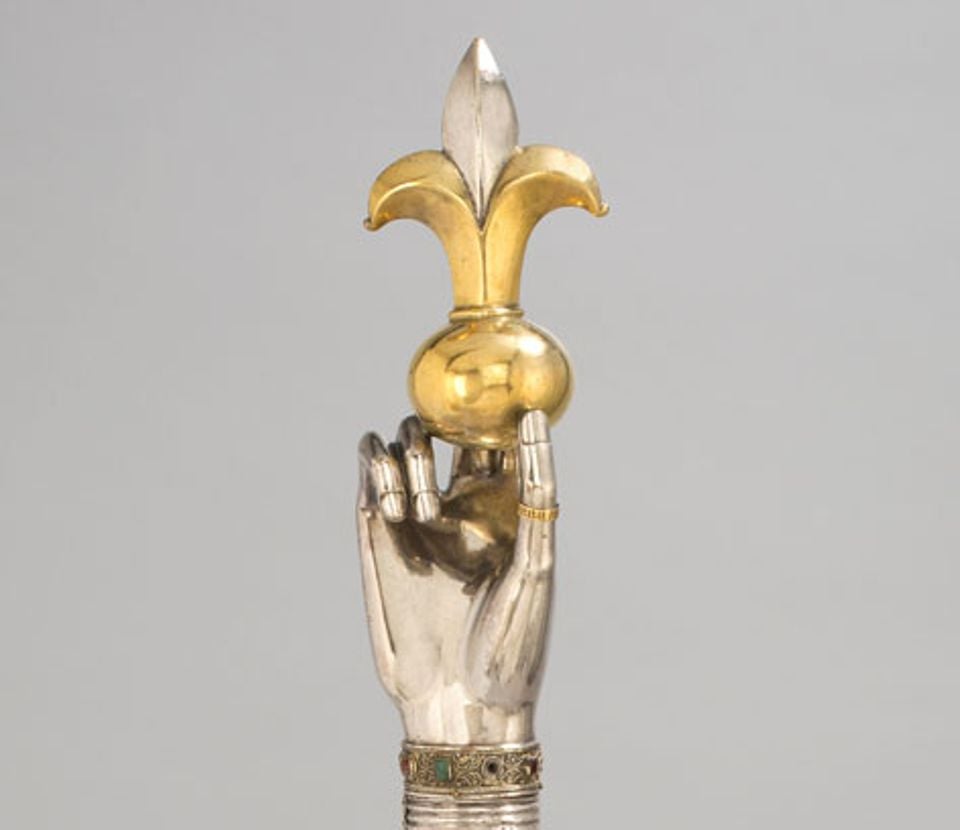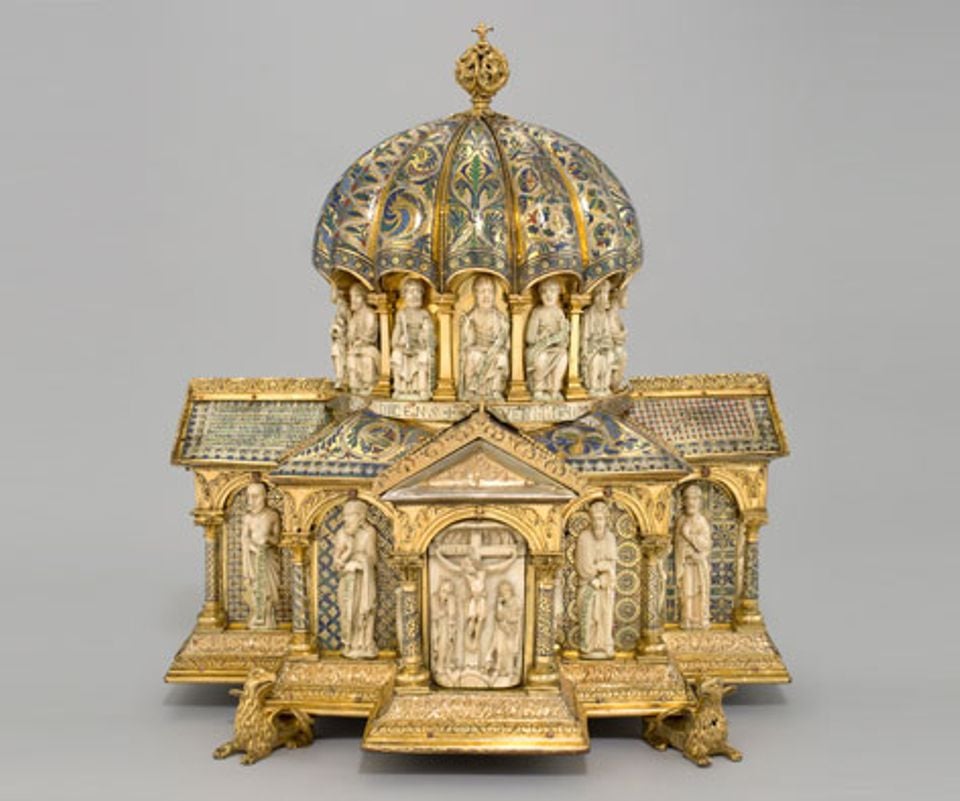Law & Politics
In a Bid to Keep the $275 Million Guelph Treasure, Germany Appeals Nazi Restitution Case to the US Supreme Court
The medieval treasure has been locked in a bitter legal dispute for years.

The medieval treasure has been locked in a bitter legal dispute for years.

Sarah Cascone

The dispute over Germany’s famed Guelph Treasure, and whether its 1935 sale by Jewish art dealers to the Prussian government was made under duress, could be headed to the United States Supreme Court. The Prussian Cultural Heritage Foundation (the Stiftung Preussischer Kulturbesitz, or SPK), which runs Berlin’s state museums, plans to appeal to the country’s highest court in an effort to prove that the US does not have jurisdiction in the case.
“The SPK is convinced that this was not a sale under duress due to Nazi persecution,” the foundation said in a statement provided to the Art Newspaper. “It views these claims as unfounded. Regardless of this, the SPK is of the opinion that this case—concerning a historic transaction between Germans in Germany— shouldn’t be heard in a US court.”
A consortium of Jewish art dealers purchased the 82-piece Medieval golden hoard, originally from Brunswick Cathedral in Braunschweig, Germany, from the Duke of Brunswick, of the royal dynasty the House of Guelph, for 7.5 million Reichsmark in 1929.
They sold about half of the collection at a loss, for 4.25 million Reichsmark, to the Prussian state in 1935. The plaintiffs allege that Hermann Göring, later the Nazi Party leader, was involved in the purchase and eventually gifted the treasure to Adolf Hitler. Today, that part of the treasure, housed at the Bode Museum in Berlin, is said to be worth as much as $276 million. (The rest was sold to museums and private collectors.)

A 12th century domed reliquary from the Guelph Treasure. Photo ©Staatliche Museen zu Berlin, Kunstgewerbemuseum/Fotostudio Bartsch, Berlin.
The restitution battle has been raging since 2008, when the heirs of the Jewish dealers brought their claim before Germany. The German Advisory Commission on Nazi-looted art’s non-binding 2014 ruling found that “the sale of the Guelph Treasure can not be considered a forced sale” and attributed the drop in value to the onset of the Great Depression.
In 2015, the SPK filed a motion to dismiss a second lawsuit, filed in US court, invoking the Foreign Sovereign Immunities Act. A district court in Washington, DC, agreed to hear the case in 2017, a decision upheld in July 2018 by a US Court of Appeals, and again last week by the US Court of Appeals for the District of Columbia Circuit.
“The SPK’s desperation to avoid scrutiny of a ‘sale’ in 1935 by Jews to Hermann Goering speaks for itself,” said the plaintiffs’ lawyer, Nicholas O’Donnell of Sullivan & Worcester in Boston, to TAN. “The SPK’s latest press release is just another instance of Germany pretending to care about the issue of Nazi-looted art while doing everything it can to stand in victims’ and heirs’ way and run down the clock until another generation passes away.”